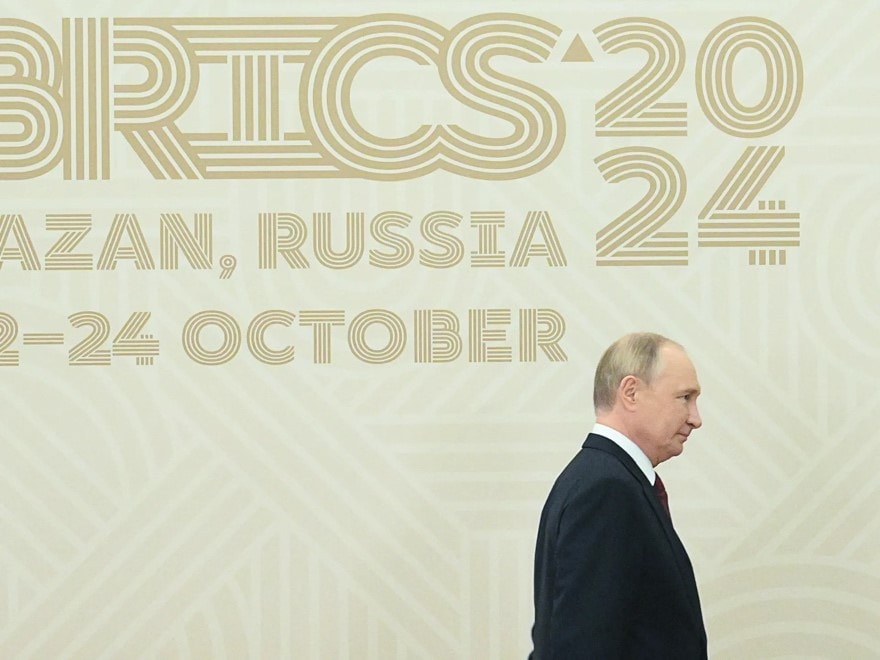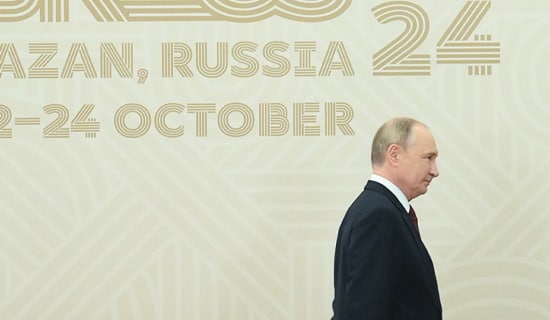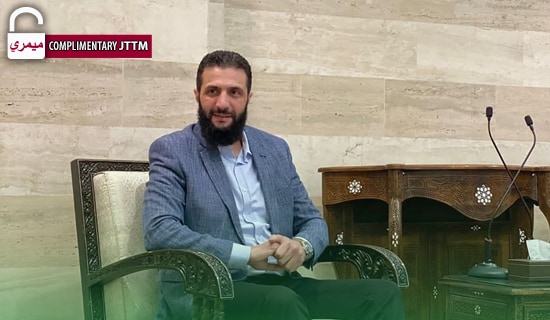Since the COVID-19 pandemic, analysts all over the world have been talking about the challenges to globalization coming from the fear of the Western world's "excessive" dependence on countries to which they had outsourced their industrial facilities. With Russia's aggression against Ukraine and the consolidation of the "global South" becoming ever less friendly to the West, the sense of "de-risking" took on a new meaning since the world began to split into "friendly" and "unfriendly" nations.[1]
The doubts about the future of globalization – either in a form of speculation about the formation of two or more "regional globalizations" arising around the U.S. or China or simply focused on the rising tariffs and increasing fragmentation of the international economy[2] – became widespread, if not a dominant, trend. Paying the needed attention to both developments (I addressed the first one back in 2021[3] and have mentioned the latter many times since), I would like to focus on a different trend that needs to be analyzed as well.
The trend I am talking about has been clearly visible since the first days of Russia's war against Ukraine, though it had been developing for many years before then. I mean the system of paralegal transactions envisioned decades ago by the most insightful theorists like Moisés Naím, who wrote his first work on the five wars of globalization[4] back in 2005.[5]
The change that the 21st century has brought to the scene consists of the evolution of those forces that stay behind the process – while beforehand there were gangs, illicit networks, or different anti-systemic forces, nowadays the move is backed by many sovereign governments. This trend has also started not overnight, and one may see its first manifestations in Hugo Chavez's Venezuela, where state-owned companies hid their currency proceeds in offshore zones to smuggle dollar cash into the country to exchange it into bolivars at a market rate and pay their employees,[6] or in Iran, which succeeded in selling millions of barrels of its oil to China, pretending that it originates from Malaysia and getting paid in yuan or UAE dirhams using various hawala schemes rather than banking institutions.[7] But only with Russia becoming the world's largest and most aggressive pariah state, rising to the top of the list of most sanctioned nations,[8] has the problem grown to a kind of a global issue affecting dozens of industries and many economies.
In less than three years of war, Russia succeeded in advancing a new economic infrastructure that fits my definition of "alternative globalization."

(Source: YouTube)
Russia's New Economic Infrastructure
First, it nullified the very principle of intellectual property rights. From the first weeks of the conflict, facing Western sanctions, the Russian government proclaimed that it authorizes Russian companies to produce for free goods and substances that normally required royalty payments if they are "badly needed" by the customers.[9] Drugs, medical devices, and many other types of products were exempted from respecting patent laws and licensing agreements. Later, as Western entertainment companies formally exited the Russian market, the cinemas began to show pirated copies of the newest U.S. and European movies.[10] Western software was also pirated and not only used illegally throughout the country, which became a sharp contrast to the previous practices when the police have often fined companies and individuals for using non-licensed software,[11] but also sold to customers in Africa and East Asia. As many IT companies declared bans on their Russian businesses and refused to receive payments from local companies, many such providers continued to use their cloud services for free while charging their domestic customers at full pre-crisis price. Such examples were numerous, and these practices benefited Russian business massively for a long time.
Second, in the early months of 2022, the Russian government eased – or, actually, lifted, many requirements on importers.[12] Since the mid-2000s, Russia had strict consumer protection legislation, so the companies that imported foreign produce had to conclude dealership agreements with the manufacturers, provide all the necessary documentation in Russian, undergo attestation for security and durability of the goods that were to fit Russian standards, etc. In 2022, almost all these requirements were lifted, and any company can now buy iPhones, PCs, or home appliances produced by any company in any other country and bring them to Russia without any certificates or manuals. This system, called "parallel imports," cannot be called a smuggling operation since some duties and taxes are paid, but it differs a lot from the common practice as it requires some formalities to be respected vis-à-vis the producers. Nevertheless, the "parallel imports" were a salvation for the Russian market since more than 30 percent of all deliveries almost immediately switched to this category.[13]
Third, Russian companies and the Russian state, disturbed by European energy sanctions, the EU oil ban, and the attempt to introduce an oil price cap in 2023, launched a bold attempt to build their own oil tanker fleet, whereas before up to 80 percent of seaborne exports of Russian oil were shipped by foreign vessels (most of which were registered in low-tax jurisdictions but owned and insured by EU companies, predominantly Greek, Maltese, or Cypriot).[14] By mid-2023, Russia had amassed up to 1,000 mostly old-fashioned and not well-maintained vessels bought all over the world at bargain prices,[15] and started to ship its own oil without Western help. To circumvent the sanctions and evade oil price cap requirements, the Russian "shadow fleet" began to operate secretly – most often, the ships switched off their transponders to make their itinerary invisible,[16] and also met other tankers in the high seas to pump oil and oil products from one ship to another.[17] All such activity has been considered dangerous as some vessels have leaked, causing significant environmental damage (several cases have been already recorded)[18] and as these huge accidents would not be covered by first-class insurance companies. I would say that since these tactics proved to be quite beneficial for the Russians, it will sooner or later be replicated by many states facing restrictions on their foreign trade.
It should also be mentioned that Russia has de facto legalized both the mercenary military service and trade in weapons and ammunition without limits, including transactions with countries that face internationally recognized and UN-authorized sanctions (like North Korea and Iran, from whom the Russians are buying shells, missiles, drones, etc.).[19] Already more than ten countries have confirmed that the Russian authorities were trying to recruit their citizens into the Russian army,[20] and India's prime minister even negotiated directly with President Putin for the release of dozens of Indians forcibly held in the Russian military.[21] In these deals, the Russian authorities did their best to hide all proof of such illegal trade, sending ships to North Korea and Iran or moving groups of soldiers from North Korea to Siberia in high secrecy.[22] As the Western powers, especially the U.S., increased their sanction pressure on Russia's counterparts, most notably China, the smuggling of the sanctioned goods became more sophisticated, with up to a dozen intermediary countries involved. On the other hand, the Russian goods make their way to the customers via third countries who openly violate Western sanctions (e.g., Armenia, contrary to the requirements of the EU's SeventhSanctions package, increased its gold exports by 17 times this year,[23] with almost all the increase being re-exported Russian metal).[24]
The fifth and, I would say, most important point is the system of settlements developed by Russian, Indian, Chinese, and other companies for evading restrictions imposed by Western financial authorities.[25] As the sanctions became tougher, these settlements began to be made using third countries' currencies (like the transfers from India are made via UAE in dirhams); via offshore jurisdictions (like Singapore or Hong Kong) or through using cryptocurrencies or hawala schemes (today, the money sent from Moscow can be collected in almost any large city on any continent in less than two hours – the service fees are around two times less than they were if one used the Western Union service prior to the war that was discontinued at its start; I would add here that the company that offers such services and is the most used in Russia these days is by the way founded and managed by Ukrainians). But, even such developments might be called disturbing, the next step would be even more dangerous to the Western-dominated financial world: The countries of the "global South" may go forward in either establishing their own non-U.S. dollar-based settlement mechanism or at least an independent clearing system that would allow the transfer of money without any information being provided to the Western central banks or financial authorities.[26] It may well happen, therefore, while trying to execute the monopoly on the dollar/euro-denominated transactions through banning the Russian or Chinese banks from the Western financial services, the U.S. and EU governments may contribute to long-term deterioration of their own international financial position.
The "Global South" Is Designing Its Own Financial System
These are just a few features and manifestations of what I call the "alternative globalization." It differs a lot from anything Russians have tried to accomplish before, since in the past decades they (as well as the Chinese or the Arabs, or the Fourth World nations) attempted to infiltrate the Western financial environment to become a part of the "golden billion." Many Russians have been busy opening offshore bank accounts, using private financial services provided by Switzerland, Luxembourg, Monaco, or London-based banks, legalizing their holdings through the hard work of lawyers all over Europe, and investing in real estate or industrial companies in Western countries.[27] When this business was flourishing, Western analysts called this practice a corruption of the Western financial and judiciary system, and they were quite right in these assessments – the Russians familiar with the issue expressed the same opinion.[28] Such a drive resulted in the growing influence the West gained upon "the Rest" since it attracted its wealthiest people and their funds, accumulating more capital in the world's financial capitals (I called it once "The Third Colonialism").[29] Yet, what one witnesses today is a reverse trend: the "global South" is designing its own financial system with its own centers of luxury living like Dubai, Hong Kong, etc. using Western-designed instruments like cryptocurrencies and blockchain transactions, they are fostering a "alternative globalization" the West may not catch up with.
I would argue that such a development is much more dangerous than any tariff barriers, industrial espionage, casual intellectual property rights violations, or episodes of smuggling or money laundering. All the above cases were examples of the general trend to either catch up with the West or infiltrate its framework – and all of them were privately initiated and business-driven attempts. What comes now is the well-orchestrated, massive wave of state-sponsored and government-overseen activity aimed at building a competitive system able to challenge the Western-designed industrial, trade, and financial infrastructure that has been serving the ends of liberal globalization for several decades.
This "alternative" (or, better to say, "adverse," globalization) is gaining ground being accompanied by the creation and development of alternative economic, political, and military blocs – from BRICS+ through the Shanghai Cooperation Organization to the Collective Security Treaty team – and is preparing to withstand the West's attempts of bringing the world to terms with those long-standing agreements and principles that have been in place since the glorious times of the end of World War II. No one knows now what the result of this tectonic shift might be, but it definitely deserves attention and should not be confused with a short-term and transient phenomenon that might be cured by balancing the global trade, enforcing intellectual property rights, or creating a more sophisticated international financial architecture...
The text is an adopted and enlarged version of a presentation made by the author at a plenary session of the 17th edition of the World Policy Conference in Abu Dhabi, December 13, 2024.
*Dr. Vladislav Inozemtsev is the MEMRI Russian Media Studies Project Special Advisor, and Founder and Director of the Moscow-based Center for Post-Industrial Studies.
[1] Secretmag.ru/enciklopediya/chto-takoe-nedruzhestvennye-strany.htm, August 19, 202; Globalcenter.org/resource/understanding-bank-de-risking-and-its-effects-on-financial-inclusion, November 2015.
[2] Economy-finance.ec.europa.eu/system/files/2023-10/eb075_en.pdf, 2023.
[3] Philpapers.org/rec/INOTAO-3
[4] Moisesnaim.com/my-columns/2020/6/1/five-wars-of-globalization, November 3, 2009.
[5] Naím, Moisés. Illicit. How Smugglers, Traffickers, and Copycats are Hijacking the Global Economy, New York, London: Doubleday, 2005.
[6] Reuters.com/article/business/healthcare-pharmaceuticals/venezuelan-companies-awash-with-cash-find-way-to-move-money-abroad-idUSL1N2N11R6/, May 18, 2021.
[7] Atlanticcouncil.org/blogs/new-atlanticist/the-axis-of-evasion-behind-chinas-oil-trade-with-iran-and-russia/, March 28, 2024.
[8] Bloomberg.com/news/articles/2022-03-07/russia-surges-past-iran-to-become-world-s-most-sanctioned-nation, March 7, 2022.
[9] Advgazeta.ru/ag-expert/news/izmeneniya-v-sfere-intellektualnoy-sobstvennosti-nachala-2022-goda/, April 20, 2022.
[10] Svoboda.org/a/tretj-dohodov-rossiyskih-kinoteatrov-prishlasj-na-piratskie-gollivudskie-filjmy/32500271.html, July 12, 2023.
[11] Vedomosti.ru/technology/articles/2022/03/11/913009-otvetstvennost-piratskii-soft, March 11, 2022.
[12] Government.ru/docs/44987/, March 30, 2022.
[13] Rg.ru/2022/11/01/reg-cfo/logistika-postavok.html, November 1, 2022.
[14] Secretmag.ru/enciklopediya/chto-takoe-tenevoi-flot.htm, June 15, 2023.
[15] Forbes.ru/biznes/508416-cernoe-zoloto-na-temnyh-korablah-cto-takoe-tenevoj-flot-rossii-i-otkuda-on-vzalsa, March 25, 2024.
[16] Tass.ru/mezhdunarodnaya-panorama/14806785, June 2, 2022.
[17] Amp.meduza.io/amp/news/2024/10/17/politico-tankery-rossiyskogo-tenevogo-flota-perevozyaschie-neft-v-obhod-sanktsiy-ostavlyayut-razlivy-i-neftyanye-pyatna-po-vsemu-miru, October 17, 2024.
[18] Dw.com/ru/politico-tenevoj-flot-rossii-vinoven-v-namerennyh-razlivah-nefti-po-vsemu-miru/a-70526648, October 17,2024.
[19] Istories.media/news/2022/11/14/pitaite-izdevaites-khot-gorlo-pererezaite-kak-yevgenii-prigozhin-verbuet-zaklyuchennikh/, November 14, 2022; Reuters.com/world/un-experts-say-north-korea-missile-landed-ukraines-kharkiv-2024-04-29/, April 29, 2024.
[20] Dw.com/ru/minoborony-velikobritanii-rf-prodolzaet-verbovat-inostrancev-na-vojnu-v-ukraine/a-68828424, April 15, 2024.
[21] Forbes.ru/society/516525-modi-poprosil-putina-uvolit-indijskih-ucastnikov-specoperacii-iz-rossijskoj-armii, July 9, 2024.
[22] Youtube.com/watch?v=r5WhdN1JlDc
[23] Diepresse.com/19096118/die-eu-die-armenische-illusion-und-die-fakten, November 11, 2024.
[24] Theins.ru/en/corruption/276578, November 25, 2024.
[25] Asiatimes.com/2024/07/us-warns-chinese-banks-over-russian-shipments, July 23, 2024.
[26] Rbc.ru/economics/23/10/2024/6718d1659a794704da8000fb, October 23, 2024; Rbc.ru/finances/26/11/2024/674592679a79475bc773f5a5, November 26, 2024.
[27] Forbes.ru/milliardery-photogallery/343801-im-ne-strashna-nacionalizaciya-10-milliarderov-s-naibolshimi, May 17, 2017.
[28] Lebedev, Alexander. Hunt the Banker: The Confessions of a Russian Ex-Oligarch, London: Quiller Publishing, 2020.
[29] Monde-diplomatique.de/artikel/!5350184, November 10, 2016.




.jpg)
